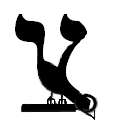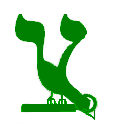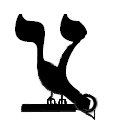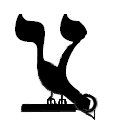OK, so I'm totally addicted the the Baby Center Jewish board. With Passover starting next week, there have been some interesting food issues on the Board lately that got me thinking...
For most of my Jewish relatives, Passover seems to mean a set of dreary restrictions on diet choices. No bread? No pasta?! I, on the other hand, really look forward to the special dishes we only make at this time of year, like my favorite breakfast: matzah granola. It reminds me of the anticipation I used to feel as a child (long before being Jewish) for Christmas. Of course, I can't make my grandmother's Swedish spice cookies for Passover! (hmm, or can I?... I'll have to play with that recipe this summer.)
So it's fascinating to me when I find that things I'd taken as hard-and-fast halachic rules about what's kfp turn out to be not so certain. Example:
recent article in the New York Times on the orthodox tradition of using *Kosher for Passover* baking powder and baking soda!!
My only interpretation of this is that chemical leaveners must have been restricted on the basis of "putting a stumbling block before the blind" - i.e., an observant Jew using chemical leaveners may put less knowledgeable Jews' understanding and practice at risk. If the less knowledgeable person eats or sees this food, he may not realize it's been lifted with baking soda and think it has yeast. Knowing the cook as an observant person, the less knowledgeable Jew could thus be led astray into non-halachic practices by accident, thinking, "well, so-and-so made leavened cookies so it must be ok."
I was also intrigued by one woman's question about serving lamb on Pesach - kosher or no? I LOVE lamb, and have done braised lamb shanks for Passover int he past, but got the sense from some (Ashkenazi) cookbooks and sites that this was sort of tacky, if not downright forbidden. So I thought I'd do some exploring, and found the following halachic commentary (as cited on
a Passover site that seems to be coming out of Switzerland):
According to the Mishnah Talmud, you may not roast a lamb for the Pesach Seder, since in the Temple era, the paschal lamb was only permitted to be slaughtered in the Temple in Jerusalem, roasted, and then eaten at a Pesach Seder in Jerusalem. Rambam comments, "Where it is accepted practice to eat roast meat on the night of Pesach one may do so, but where this is not accepted practice one may not do so and this is a decree of the sages so that people should not think that it is paschal lamb. However, everywhere it is forbidden to eat roast lamb at the seder."So, roasted lamb is a no-go everywhere, other roasted meat may be ok if all your neighbors do it, but what about braised lamb? Or boiled lamb? Or fricassed lamb?
"The Tur" [Oraĥ Ĥayyim 476] is more circumspect. It says that one may not eat a lamb that has been roasted whole over a spit.The Sephardim, as elsewhere in Passover food laws, seem less concerned with adding additional restrictions to the earliest prohibitions, so non-roasted lamb is ok at the seder, particularly if you know it wasn't ritually slaughtered and roasted in Jerusalem before being shipped to your Passover table. I'm pretty sure my Oregon-gown lamb hasn't flown around the world, so we're good to go there.
As far as I know, Swedish-Irish Jews are neither Sephardic nor Ashkenazi - in fact, they are so rare they probably constitute their own category. Since my dear husband has mixed ancestry, we can swing either way on this, so this year seder will feature a Moroccan feast (without the rice - can't go quite that far) with braised lamb, fava beans, and a Sephardi cooked charoset with no nuts.
Almost makes all the cleaning worth it!

 Couldn't resist. ;)
Couldn't resist. ;)




